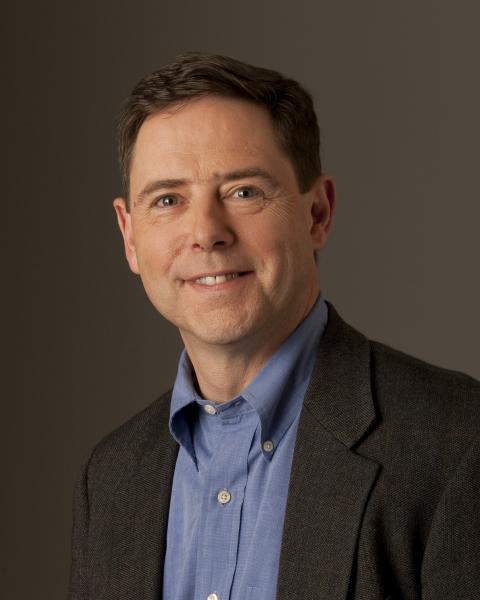Origin Stories: Journalists Anne Polta and Scott Hensley explain how they became bloggers

Many members of ReportingonHealth tell me that they feel like they should be blogging. But they are often pressed for time, technologically intimidated or just don't know where to start. This week at Career GPS, newspaper reporter Anne Polta explains why she blogs about health. Scott Hensley, the host, editor and writer of NPR's Shots blog, explains why he moved from reporting for a newspaper to only blogging and what questions journalists should ask themselves before they take the leap.
[Looking to make a change in your career? Find this week's health media jobs and opportunities curated by Kristen Natividad and keep up with Career GPS posts and jobs via RSS or by bookmarking this page.]
Why will you blog about health?
Anne Polta is a staff writer at West Central Tribune in Willmar, Minnesota. She started a personal blog in 2006 and really enjoyed it. In 2008, she started a blog to augment her newspaper reporting. HealthBeat, Polta explains in an email, began with compelling personal experience:
I have a passion for health care. Some of it is influenced by personal experience. I had non-Hodgkin's lymphoma when I was in my 30s and experienced a serious chemotherapy-related injury during my first treatment. It was totally eye-opening to see what the system is like from the patient's point of view. Young adult cancer patients tend to be virtually invisible in the system, and the state of follow-up care is abysmal. Back then, no one ever talked about patient safety, disclosure or adverse events. I saw some enormous gaps in what the care was actually like vs. what it should have been like, and I guess you could say it stoked my passion for writing about health care in ways that try to take the patient experience into account.
I wouldn't exactly call myself a devil's advocate, but personal experience has made me see the system in a different way and I have become much more likely to challenge many of the longstanding attitudes about dealing with patients. This doesn't always go over well in a smaller community where the local health care providers aren't really used to being questioned. If anything, blogging has increased my interest in health care.
 Hensley's blogging origin story starts a bit earlier. But it starts, like Polta's, with a passion. "I love health. I'm a lifer for the topic," Hensley (left) says in a phone interview. "One of the things that was appealing to me about blogging when I was at the (Wall Street) Journal and also here is that the range of subjects within health that I can write about as a blogger is almost unlimited."
Hensley's blogging origin story starts a bit earlier. But it starts, like Polta's, with a passion. "I love health. I'm a lifer for the topic," Hensley (left) says in a phone interview. "One of the things that was appealing to me about blogging when I was at the (Wall Street) Journal and also here is that the range of subjects within health that I can write about as a blogger is almost unlimited."
Nearly ten years ago, he was covering the pharmaceutical industry for the Wall Street Journal when they offered him the opportunity to write an online-only column. "Sometimes I got more reaction to those columns than I did to front page stories," Hensley says. "There was a connection that people felt, I think, to the column format. In hindsight, I think that was a little bit like the way I see blogging now."
Eventually, Hensley became the founding editor of the Wall Street Journal's health blog. In 2009, he was laid off from the Journal and tapped by NPR to run, edit and write for Shots, which launched that spring. "Part of the reason to start the blog was to be able to be on the news and get information out quickly and often on whatever was important," Hensley explains. "At the time that Shots got off the ground, it was the beginning of the H1N1 pandemic. For the first few months of Shots' life, it was exclusively devoted to what was happening with swine flu."
How much time can you spend on your blog?
Hensley draws this distinction: News-driven blogs require teamwork and multiple collaborators. One-author blogs that focus on analysis can be very good as well, but posting frequently is important to building an audience. Polta explains the challenges of being the sole blogger at HealthBeat:
We are a small newsroom (six reporters) in a town of about 19,000. Many stories about health care are simply out of my reach, either because I don't have local sources to talk to or I'm spread too thin covering the day-to-day demands. (Covering health care is about 50 percent, or slightly less, of my workload.)
By far, the biggest challenge is finding time to blog consistently and to try to do it well. I have had to be more conscious of my priorities. At times I find myself at odds with some of the editors who would rather I devoted most of my time to print, and the divided loyalties aren't always easy to live with. On the other hand, I think blogging has helped improve my writing and my approach to stories. Blogging has a way of unleashing your creativity and inviting you to think of more novel ways to tell a story. I think it also has helped me become better at identifying potentially good stories and identifying a focus for the story.
What will be the focus and broader appeal of your blog?
"I think it's important for people who are blogging as part of bigger media organizations to think about the life of a post," Hensley says. "Where will it live? How will people find it?"
While Polta addresses her newspaper community in a post, for example, about a local ambulance crew, she also joins national conversations in a post about the Centers for Disease Control and emergency preparedness.
I've found blogging to be a great alternative for trying to address some of the issues that interest me or that I think readers might (or should) be interested in. The Internet also has plugged me into many resources I could never have found on my own. When you work in a small newsroom in a rural community, one of your biggest challenges is being plugged into what's going on in the world beyond your city limits, what the thought leaders are saying, the diversity of perspectives and so on. The Internet and blogging frankly have been a godsend, and I think they've helped me frame stories in a context that goes beyond the local. At some point every story becomes local but each story also fits into a bigger picture, and blogging has helped me learn to think beyond the local.
Hensley enjoys a niche audience and the broader reach of the NPR network with Shots. "You have to be a little bit schizophrenic," Hensley says. "I would encourage people when they're thinking about blogging to think simultaneously about the core audience and the alternative home pages. That could be the Facebook page, somebody else's blog who links to your piece, Twitter, Tumblr. That's where you have to be your own circulation department."
Why blog?
Hensley is not down on reporters starting blogs. It's a great way to learn new skills and teach yourself to write for the web. It's also great fun. Hensley says the variety of the work got him into journalism in the first place and Shots offers him the chance to do all sorts of tasks, "editing to reporting and little bit of radio."
But he does think it's important to play devil's advocate and ask some essential questions before you start: "What's the point? What is it you need to get out? What is it you're trying to tell people in a blog that you're not able to do some other way? If part of it is personal brand building, that will get you in the game, but what are you going to do that's compelling for an audience?"
Related Post from Career GPS: Is blogging good for your career?

